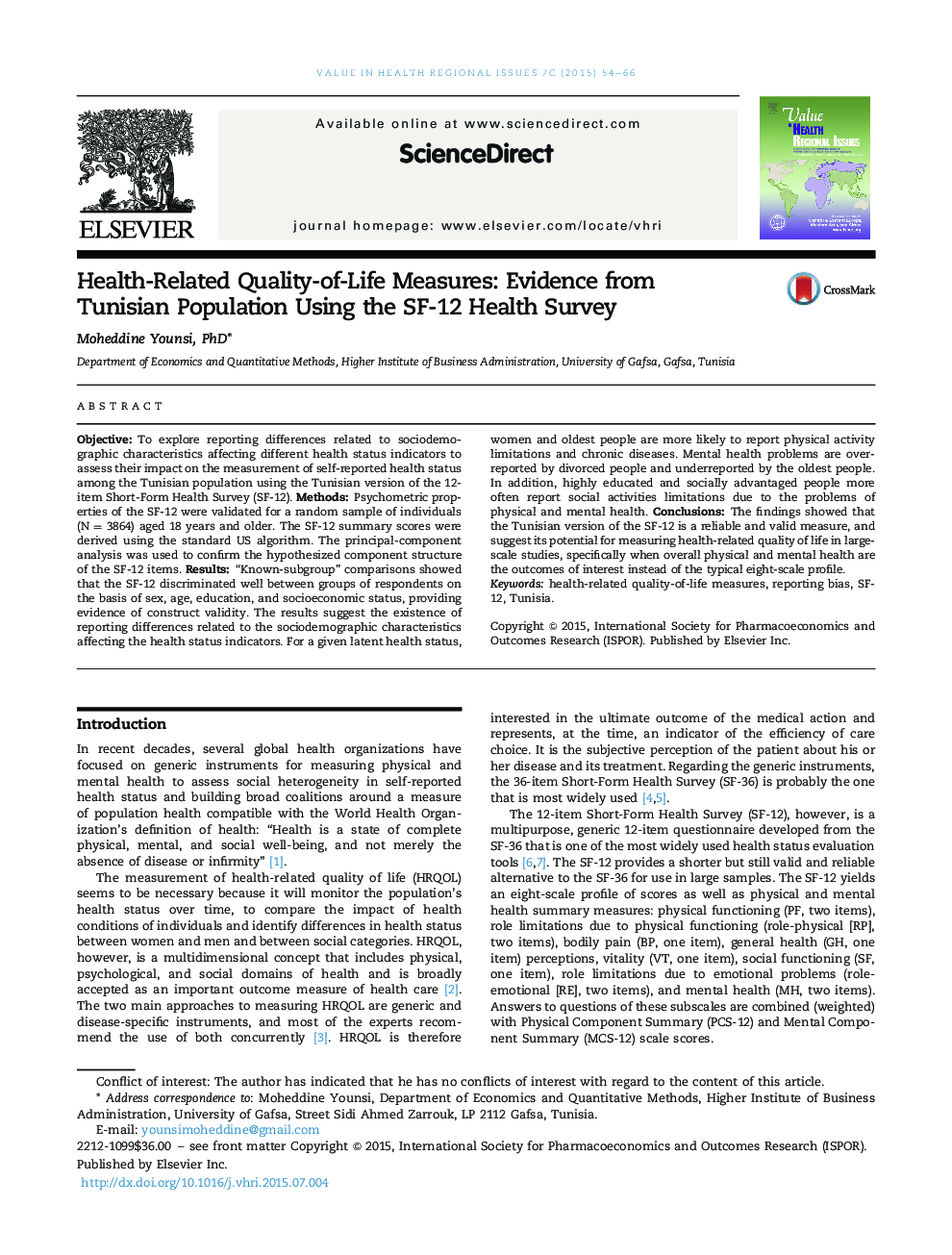| Article ID | Journal | Published Year | Pages | File Type |
|---|---|---|---|---|
| 990087 | Value in Health Regional Issues | 2015 | 13 Pages |
ObjectiveTo explore reporting differences related to sociodemographic characteristics affecting different health status indicators to assess their impact on the measurement of self-reported health status among the Tunisian population using the Tunisian version of the 12-item Short-Form Health Survey (SF-12).MethodsPsychometric properties of the SF-12 were validated for a random sample of individuals (N = 3864) aged 18 years and older. The SF-12 summary scores were derived using the standard US algorithm. The principal-component analysis was used to confirm the hypothesized component structure of the SF-12 items.Results“Known-subgroup” comparisons showed that the SF-12 discriminated well between groups of respondents on the basis of sex, age, education, and socioeconomic status, providing evidence of construct validity. The results suggest the existence of reporting differences related to the sociodemographic characteristics affecting the health status indicators. For a given latent health status, women and oldest people are more likely to report physical activity limitations and chronic diseases. Mental health problems are overreported by divorced people and underreported by the oldest people. In addition, highly educated and socially advantaged people more often report social activities limitations due to the problems of physical and mental health.ConclusionsThe findings showed that the Tunisian version of the SF-12 is a reliable and valid measure, and suggest its potential for measuring health-related quality of life in large-scale studies, specifically when overall physical and mental health are the outcomes of interest instead of the typical eight-scale profile.
